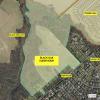The Marine Education, Research and Rehabilitation Institute recently responded to reports of seven seals on our beaches in a five-day period.
Seals rest on beaches in winter and spring. For people, they create another attraction on the already-popular beaches. Despite MERR warnings that seals are wild animals, have teeth, and can be aggressive, some people still can’t avoid the temptation to see them up close. For those who yield to the temptation while walking their dogs, they endanger not only themselves and their dogs, but also the seals, often already in weakened condition.
As our local population grows, so too do these potentially dangerous encounters. Being careful and using common sense will help.
The state will also have to be careful as it walks the tightrope between the number of surf-fishing permits it distributes each year, and the all-important and essential beach resource it seeks to protect for the long-term benefit of all, including people and the wide array of wildlife that desire and depend on a healthy resource.
This year the state distributed 17,000 permits. When it became that evident that demand by a clamoring and pandemic-weary public far outweighed supply, the state issued an additional 1,000 permits via park offices up and down the state. People lined up overnight to quickly buy up the coveted extra permits when they became available. The 250 allotted to Cape Henlopen State Park barely lasted past 7 a.m. the day of distribution.
A rapidly growing population and finite resources present challenges. Permits are one form of regulation. Will more regulation be needed to protect our sweet spot? Hold the line on available permits? Stricter enforcement of active fishing requirements? An odd-even system based on license tag numbers and letters as was once used for fishing days and walking days?
The need is coming. Let the dialogue begin.











































